|
|
Seeds of Fire: A People’s Chronology
Recalling events that happened on this day in history.
Memories of struggle, resistance and persistence.
Compiled by Ulli Diemer
|
June 1378
|
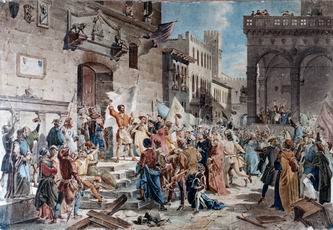
|
|
Revolt of the Ciompi. Low-status workers in Florence’s textile industry, known as ciompi, rise in revolt demanding the right to have a say in the governing structures of the commune and the textile industry. They take up arms and attack government buildings. On July 21, they forcibly take over the government and bring about a number of democratic reforms, including the creation of additional guilds which will give them access to political representation. (Florence’s political system at the time is based on guilds.)
After a period of time, the traditional power structure gradually reasserts itself: by 1382, all the reforms brought about by the revolt of the ciompi are eliminated.
|
|
June 1497
|
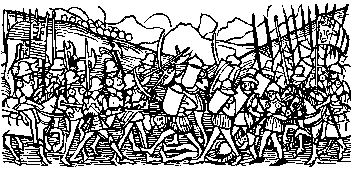
|
|
The Cornish rebellion of 1497. People of Cornwall in southwest Britain rebel against their oppression by the English government. The immediate grievance is the imposition of steep taxes to support Henry VII’s military adventures, but resentment of English rule over Cornwall is an underlying sentiment.
They succeed in assembling an armed force of 15,000 men, but many Cornish hold back, because they are afraid to challenge the power of the king, or because they have attained positions of privilege under English rule.
The rebels are defeated at the Battle of Deptford Bridge on June 17.
|
|
June 1, 1649
|
|
|
Start of the Sumuroy Revolt: Filipinos in Northern Samar led by Agustin Sumuroy revolt against the polo y servicio (forced labour) imposed on them by the Spanish colonial authorities. The revolt spreads to Mindanao and other regions. In the mountain regions of Samar, inhabitants set up an autonomous government free of Spanish control. After initial victories, the rebel group led by Sumuroy is defeated a year later, in 1650, and Sumuroy is killed. The rebellion continues for years in some regions, and even after armed conflict ends, resistance to Spanish rule continues.
|
|
June 1, 1848
|
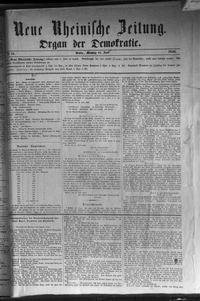
|
|
The first issue of the radical daily newspaper Neue Rheinische Zeitung is published in Cologne. Founded by members of the Communist League, and edited by Karl Marx, the paper aligns itself with the most revolutionary and radical elements of the democratic movement.
In May 1849, the Prussian government shuts down the paper and expels Marx from Germany.
|
|
June 1, 1873
|
|
|
Cypress Hills Massacre: A group of American hunters and whisky traders who have crossed the border into Canada attack a Nakota camp in what is now Saskatchewan, killing 23 people.
|
|
June 1, 1906
|
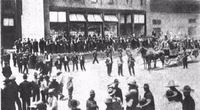
|
|
Copper miners in the Mexican town of Cananea go on strike against the American-owned Cananea Central Copper Company. Their demands include a pay increase, better working conditions, respectful treatment, an end to discrimination against Mexicans and the removal of an abusive foreman.
The company rejects their demands and calls in American gunmen from Arizona to attack the miners. More than 20 miners are killed, and more than 100 are jailed.
|
|
June-July 1914
|

|
|
U.S. forces intervene in the Dominican Republic to ‘protect American interests.’
|
|
June 1964
|
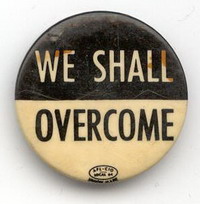
|
|
Freedom Summer: a campaign to register as many black voters as possible in Mississippi, a state in which nearly all blacks are excluded from voting by a range of legal and extra-legal tactics ranging from high registration fees to beatings and murder.
The campaign involves thousands of black Mississippians and more than one thousand out of state volunteers. It meets with intense resistance from white racists. During the course of the summer-long campaign, seven civil rights workers and supporters are killed, four are critically wounded, eighty are beaten, and more than 1,000 are arrested. Thirty black homes are bombed or burned, and 37 churches are burned or bombed.
The drive fails in its immediate goal of registering large numbers of voters, but provides a huge surge of support for the civil rights movement.
|
|
June 1967
|

|
|
A group of American Vietnam War veterans form Vietnam Veterans Against the War to voice the growing opposition among soldiers and veterans against the American war in Indochina. Membership grows to 25,000 by 1972.
In early 1971, VVAW sponsors The Winter Soldier Investigation to gather testimony from soldiers about war crimes being committed by U.S. forces in Indochina.
|
|
For more information about people and events in Seeds of Fire, explore these pages:
|
|
|
|
|
|

